#flag example
Explore tagged Tumblr posts
Text
Cosmoaegis System ~ 🔭
A gender system where identity is connected to celestial entities and their symbolic forces. [ Symbolism, cosmic entities and celestial bodies. ]
subgender example:
[x]moaegis - a gender connected to [celestial body] and its symbolic forces.
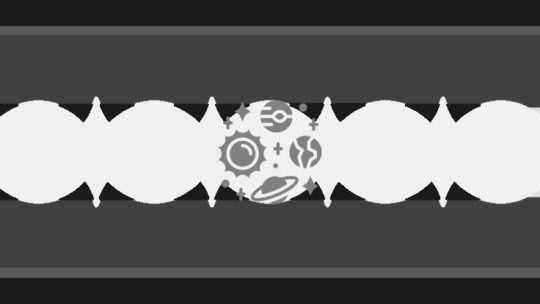
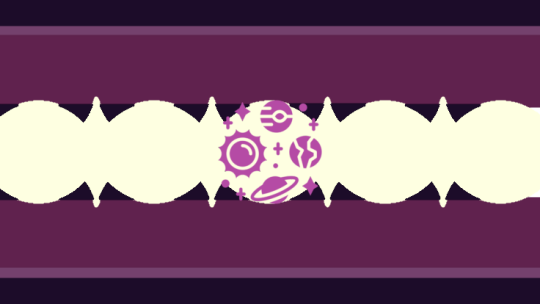

Black n white | original colors | No symbol
#[x]moaegis#moaegis flag#flags#liom coining#mogai blog#liomogai#mogai coining#mogai community#mogai#mogai flag#mogai gender#mogai label#xenogender#identities#presentations#flag templates#flag example#my flags#pride flags#pride#queer pride#lgbtqia#Cosmoaegis#Cosmoaegis gender#gender system#neogender#spacegender#gender#queer stuff#gender stuff
23 notes
·
View notes
Note
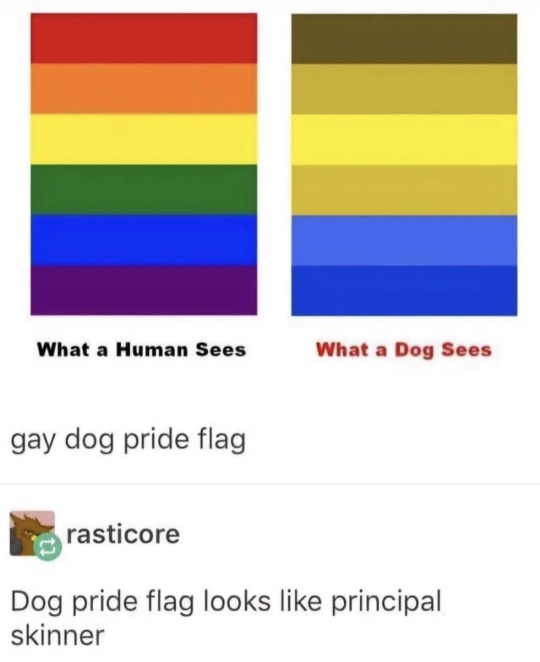
For your gay little dogs
.
#principal skinner pride flag for my gay little dogs#you see this is why my dog people need to see the same spectrum of colors we do#I feel like their literal world view would be drastically altered if they couldn't distinquish between orange and green#I'd argue that red is a significant color in practically every culture#it's instinctual associations with danger food and fertility make it attention grabbing on a visceral monkey brain level#I strongly suspect the impact would be at least somewhat negated if it was a muted brownish khaki instead#meaning it wouldn't be used in visual communication nearly as much#I would have to center my art and worldbuilding more around yellow and blue because those would be the colors the dogs would see clearly#right? is that sound logic?#and that would just make me immensely sad because warm colors are my favorites :<#answered#m0notropa-uniflora#something that continues to boggle my mind is that there are animals that see more colors than humans#we like to assume that our color vision is the best we can see it ALL look at that rainbow there that's the full set#yes primates are well equipped in this regard compared to many other mammals like dogs#but most birds for example have more color receptors in their eyes they have more tools to work with and their rainbow is even wider#it's like sound everyone knows we can't hear sounds that are impossibly low or too high#and we can't process wavelengths of light that are too long (infrared) or too short (ultraviolet)#only what lands between those bookends (called the visible spectrum) reads to our human eyes as “light” and subsequently “color”#I hope I've understood this correctly I'm trying to say that there's a whole layer of vision we don't have the hardware to get access to#and that's just wild to me like we are fundamentally unable to imagine a new color that isn't already included in our built-in selection#but they're definitely there the unimaginable colors are in the room with you and a common pigeon can see them#uv dlc not available for your system
598 notes
·
View notes
Note
hiiiii! Quesssstion:
Would you iterate your Siren Eclipse being rejected by someone he’d probably have an interest in?
This is tooootally not also a silent ask of who’s even interest him at all 🤣.
Side note- I adore your style and illustrations. Keep it up!




This toxic ass bitch fish would NOT know how to take "no" for an answer He's the best catch in the entire ocean, pun intended hehe, who in their right mind would reject a Siren such as him? He would not accept such a foolish rejection, no, he'd take it as a challenge and he will get what he wants.
He always does
#THIS BITCH IS SO TOXIC YALL#Vampire AND Siren Version!#“healthy coping mechanisms?” HES NEVER HEARD OF EM#His red flags are redder then the McDonalds logo and more toxic then the sprite they sell#also just wanna say that this mini comic aint cannon. it just an example uwu#Siren Eclipse#Mermaid Eclipse#fnaf Eclipse#mermay 2025#eclipse fnaf#eclipse#fnaf sb#fnaf security breach#fnaf dca#dca au#fnaf daycare attendant#dca mermaid#mermaid#mermay#fnaf dca siren au#quick sketch#bella-nocturnal
254 notes
·
View notes
Text
if Charles Leclerc has a million fans, I am one of them. if Charles Leclerc has a hundred fans, I am one of them. if Charles Leclerc has ten fans, I am one of them. if Charles Leclerc only has one fan, it is definitely Max Verstappen.
#kinda scared to fight him on it#the one thing that the lecfosi can collectively agree on is this#he won this round#he has a severe case of LOSER#prime example: the singapore/monaco flag debacle#THATS A TAG#charles leclerc#max verstappen#lestappen#f1#formula one#formula 1#singapore gp 2024
342 notes
·
View notes
Text
middle aged men are the gay people equivalent of crack cocaine
#good omens#our flag means death#hannibal#crowley#aziraphale#gomens#stede bonnet#blackbeard#ed teach#hannibal lecter#will graham#ineffable husbands#hannigraham#theres definitely more#i just cant think of any other examples rn#hannigram#gentlebeard#aziracrow
2K notes
·
View notes
Text
honestly every time i remember buck is canonically bi and is dating a man now i get so 😳😳😳 about it. like in our fandom sphere it's easy to say he's been bi-coded for years and joke with all the "wbk"s but i genuinely think people are missing what a gamble it was for ABC to pick up a show from another network and go this route with a main character that the majority of the audiences wasn't as percipient about.
buck's case is so singular imo because there are still certain - silent - rules to queer rep in mainstream media. the audiences are almost always clued-in on a character being queer early, for example. it's either shown immediately or mentioned in conversation in those first few scenes/eps the characters are established. if a character is not out, then they are not out to the rest of the characters, not the audience. if a character doesn't know they're queer yet - or ready to accept it - again, the audience knows, the story/foreshadowing is clear about it.
i can't think of a single other example where a main character - who's been nominally straight for multiple seasons - realizes they're queer later in life like this. where it wasn't planned beforehand, wasn't an explicitly or intentionally threaded storyline, wasn't just a one-liner saying "oh yeah ofc he kissed men before" ofc i didn't watch all television ever created in the history of television but i genuinely think this was such a pioneering writing choice mainstream tv hasn't done before. i wish we could all have been more happy with it instead of *gestures* all this.
#please lmk if theres another queer rep on mainstream tv like this btw id be happy to hear it#where it's obv something decided years into the story and the character wasnt flagged as “this is the gay one” for the general audiences#but also treated as a real story instead of a haha yeah he was bi all along#yknow what i mean#i think if there are other examples prob more with female characters?#maybe#anyway#911#evan buckley#bucktommy
263 notes
·
View notes
Text
Daleth pride flags



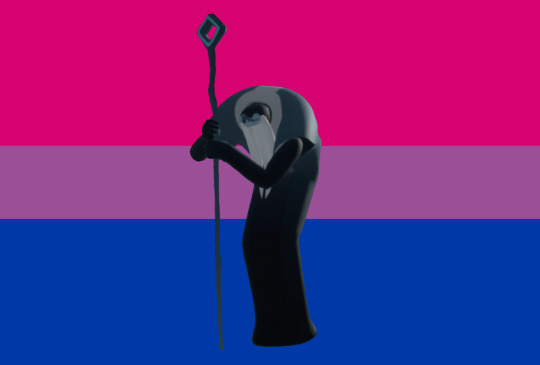
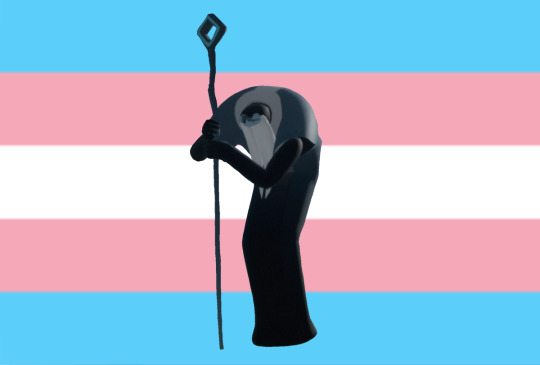

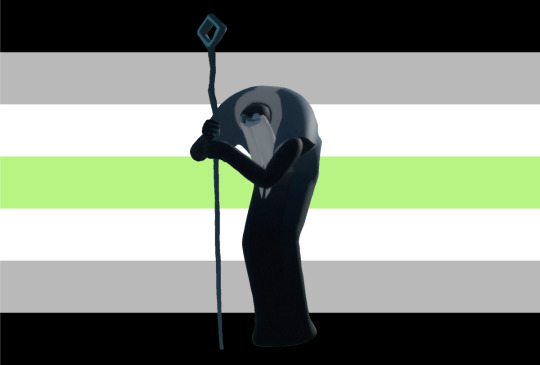



<If you request one for another elder I will explode you via nuclear bomb.>
#I have more in my back pocket (intersex flag for example)#but that damn image limit hates me lmao#I said you can’t request another elder but if u ask nicely enough I MIGHT do it. MIGHT.#sky cotl#sky: cotl#sky children of the light#that sky game#skyblr#sky elders#isle elder#daleth#pride month#pride flags#pride flag#queer pride#lgbt pride#happy pride 🌈#pride icons#lesbian pride#gay pride#bisexual pride#trans pride#nonbinary pride#agender flag#asexual pride#aromantic pride#aroace flag#inclusive pride flag#urgh so many tags#anyways if you are anti lgbtq die.
57 notes
·
View notes
Text
Hi! It's me again! Let's talk about: Shiho's trauma and how Gosho's portrayal of it comes as a pleasant surprise within Detco's rather abysmal landscape of in-depth representation
Very important disclaimer(s): I am not a licensed professional yet, and I am not diagnosed with any kind of trauma-related disorder. I nonetheless hold this topic dearly and wish to gather in one place at least a few of the things that made me truly appreciate the portrayal of Shiho's trauma in a way others haven't. Lastly, this remains of course a personal opinion first and foremost, so keep that in mind if you decide to dive into it!
P.S. - While I always try to start from canon material, we lack a lot of details re: Shiho's backstory. I will generally attempt to hypothesize what could have transpired in the past considering the repercussions we can observe in Shiho's attitude and behaviors, but my own speculations cannot compare to canon actually filling in those blanks (which I highly doubt we'll ever get in the first place).
P.P.S. - this thing got long. Like. Really long. And because of tumblr’s newfound habit of flagging random things as nsfw, I couldn't add any manga screenshots. Get ready for a wall of text, gamers
The Roots of Shiho's Trauma
Trauma is in itself an incredibly complex topic— even the mere fact that a set threshold past which events can begin to be considered traumatic doesn't actually exist on the grounds that individuals tend to react differently to the same stimuli (e.g. I once had to watch my father get the shit beaten out of him by a man twice his size to the point he had to go to the hospital, but neither I nor my dad ended up developing any sort of trauma response afterwards— I'm no warier of strangers than I'd been prior to what happened, and my father is as polite and non-threatening around really tall strangers as ever. This isn't to say that the event itself didn't have an impact on us, of course, but it didn't significantly affect our day-to-day functioning in distressing ways either. I do however know of people who, after experiencing this type of assault, developed an all-consuming agoraphobia— among other trauma-related symptoms—, for example) renders things all the more nuanced from the get-go.
With that said there is of course a point to be made about the kind of trauma Shiho herself has been subjected to. In her case, the very environment she grew up in was traumatic: from a very young age— as soon as her giftedness was identified—, she's been pressured to excel, and while studying in the States, although I imagine she hadn't been strictly beholden to furthering the Organization's goals just yet, there must have been BO members or at least affiliates watching her every move.
Later on, she is constantly required to produce results via researching something we can't even be sure she was truly interested in: being a child prodigy and yet leading the research on the "wonder drug" means she was thrust in yet another environment full of adults that likely didn't much appreciate having to listen to a literal teenager, and on top of that her social life was considerably stunted in favor of the job she'd been assigned. At any and all times she'd been under scrutiny, and her own sister was made into an incentive for her to behave herself and stick to her duties. After Rye was outed as a NOC, the situation could only have degenerated— Akemi being most likely compromised meant there was a chance Sherry was as well, which would have translated into stricter regulations and increasingly more controlling behavior from the Organization.
Considering her backstory and how it's presented to us, we also know Shiho didn't have a childhood complete with stable parental figures, and she was separated from her much less useful sister very early on. That too is a kind of instability that deeply affects the developing individual, and if unaddressed it has a high chance of leading to widespread issues later in life.
So, we already have three pretty relevant points to start with: prolonged exposure to stress, perceived (but also very real) threats and instability that spans a decade at the very least. But fear not, for we can add more.
While I think this is somewhat of a point of contention within the fandom, I myself believe that there has been some sort of abuse perpetrated towards Shiho from within the BO's ranks. Her panic reaction extends to any and all members, yes, but Gin (and for some reason Vermouth) gets the biggest externalizations of it (let us never forget that he canonically stars in Shiho's nightmares).
Now, regardless of whether we're going to find out what kind of abuse Shiho went through (psychological, physical, sexual), and considering that we most likely never will, the implications on Gin's part abound in the early manga (and one can even posit that a few specific remarks made by Shiho are a direct consequence of her own experiences, expressed through dry humor and snark as a way of feeling more "in control" of the situation). I understand that Gin is literally "guy who will hunt you down and kill you with a smile", but so are basically all the other BO members, and Shiho only ever reacts so strongly to Gin. To me this means she either directly experienced some form of abuse at his hand, or that she projected well over a decade of stress and fear of the Organization onto Gin, thus turning him into a sort of boogeyman— a herald of every horrifying thing the BO is capable of.
Lastly, the impact of Akemi's death should also be taken into consideration, above all in relation to the role Shiho is firmly convinced she herself had in it. Considering how attached Shiho was to Akemi, and how her older sister's continued safety had been the biggest incentive for Shiho to have behaved herself especially in the past few years, her execution (delivered by Gin himself, once again cementing him as a big player in Shiho's trauma) definitely "breaks" her for good.
It's worth noting that the way Shiho breaks leads her to rebel against the system that's been suffocating her all along, but doing so is insanely hard and given the lack of a solid support system to fall back on, it doesn't go far: her actions aren't even that explosive— she announces that she will no longer work on the APTX until someone tells her the truth behind her sister's death— but they nonetheless elicit an extreme reaction from the Organization, thus further confirming its status as a massive threat to Shiho in her mind. Before the BO she is entirely powerless: they decide whether she's useful or not, they decide whether she's worth keeping alive, they decide what she should do, they decide that she's expendable the moment she displays independent wishes.
We have therefore unspecified abuse and grief accentuated by strong feelings of perceived responsibility re: the loss that transpired in addition to our first three big stars in the constellation behind most, if not all, of Shiho's trauma responses.
While frustrating to my perfectionist mind (everything must have a specific cause and if I do not make an effort to clarify or at least imply what it is in my work I perish; it definitely shines through via my poorly restrained desire to compensate for the chunks and details of Shiho's backstory we're missing), the fact that a great deal of what caused Shiho's trauma in the first place is quite nondescript at first glance, almost as if Shiho were trying to convince herself and others that "it's not a big deal" by rarely— if ever— bringing it up (and when she does she recounts the events matter-of-factly, as if she were largely unaffected by them), is something I've found myself appreciating more and more as the story progressed. Not because it truly isn't important, but because it can actually be pieced together through Shiho's every action, time and time again. At long last, a character whose trauma doesn't only make itself known when a specific trigger is at play, but rather pervades every single aspect of the survivor's life whether they're conscious of it or not.
Now, one thing I won't be doing is attempting to put a clinical label on what Shiho is experiencing: this is because her position in the manga is quite complex, and seeing as the plot itself isn't centered around her and her trauma, things aren't necessarily clear-cut. For example, Shiho did indeed get out of a stressful and traumatizing environment, but that doesn't mean she's out of danger for good just yet— if we were to attempt to categorize the symptoms she displays with the goal of making a diagnosis, we just wouldn't be able to do so due to the very much still present stressors and traumatic elements.
Applying a label to Shiho's experiences is also not the point of this post in the first place, and so I decided not to. I wanted to focus on the visible effects of her trauma, and how she's shown to be willing to at least try to break away from the mechanisms and mentality she's developed.
Which is how we get to the next section of this bad boy:
Haibara Ai And Living With Trauma
From the very moment we begin to learn about Sherry's backstory, her words and behaviors indicate a deeply rooted pessimistic outlook on her predicament— and quite possibly life itself. The very name she picked for her new identity specifically includes the Japanese character for 'sorrow', as opposed to that of 'love' suggested by Agasa. Even with said choice being played off as Shiho— now Ai— intentionally trying to unsettle Conan in every way she can, I can't help but read way too much into it and see a young woman who genuinely sees herself in that Kanji. Pain is all she is. Pain is all the world offers. It's inescapable the way a name is, and she made it into a reminder she's going to hear daily from now on.
It's also interesting how Ai brings up time and time again how Conan is the only one who can understand (and therefore help) her, with specific references to their shared predicament: Conan knows about the Organization, ended up shrunk because of the APTX, and has to constantly hide from them by playing the part of a grade schooler. While a freshly shrunk Shiho's options were insanely limited from the start, she still opted to head for Kudou Shinichi's house because in her mind he was the only person who could ever understand her situation by virtue of sharing the same experience.
As the plot slowly moves forward and we get to see more of Ai interacting with the world around her, multiple other things become very clear: an especially pronounced trait of hers is that she struggles to hold on to positive emotions and trains of thought, most notably very early on in the manga. She always finds a sour note even in the happiest of situations, because her thinking patterns cannot break out of that constant negative spiral— she is effectively still trapped, at least mentally.
As an additional example of this, even though she's been away from the traumatic environment for months, Ai cannot stop thinking about it (this can technically be countered by the fact that the danger itself isn't entirely gone. Shiho is safe for the time being, but the danger is always lurking somewhere. The problem is that she sees it everywhere instead, and cannot let go of the notion that she's going to get got if she relaxes even for a moment, which is what actually makes this kind of reaction encroach into unhealthy territory).
There's a also very obvious disconnect between her and her peers (both perceived— the Detective Boys— and real— other teenagers). To Ai, all these people are too naive for this world, and they aren't ready to handle its cruelty. She is quite defeatist in her outlook on life and has difficulties understanding how the people around her can be so optimistic, which in turn makes forming new bonds much harder for everyone involved: by keeping others at arm's length, Ai acts on the fear of having to experience a loss as devastating as her sister's ever again— here we have the avoidant aspect of her trauma reactions.
Speaking of: she also projects Akemi on Ran multiple times in canon, and always in contexts where danger and death are at the very least in the background. She's just like Akemi in that she decides to protect Shiho by putting her own life on the line. She's just like Akemi and like her she's going to die. Ai's reluctance to even introduce herself to Ran, and especially her shark-dolphin metaphor, is in my opinion pretty indicative of yet another tendency that can be found in trauma survivors, and that is the belief that there is something about yourself that is inherently dirty and shameful (traumatic event(s)), that sets you apart from normal, even good people, and it is a gap that can never be filled because you're now irreversibly damaged.
Dipping our toes into a more cliché detail re: the portrayal of trauma in media, let's not forget that Ai has nightmares featuring one of the sources of her trauma (and while Gosho kind of actually uses the Gin one as a "prophetic" dream, Conan does canonically comment on the fact that Ai is a night owl/doesn't sleep nearly enough, and we could interpret that as her being unwilling to fall asleep and risk yet more nightmares).
A considerable portion of Reunion With The Black Organization is dedicated to showing us just how much of an effect a single nightmare about Gin has on Ai. She's even more withdrawn than usual, prone to getting lost in her head (possibly even dissociating), receptive to the tiniest details that inevitably rouse her memory of the nightmare to the point she fails to assess the non-existent risk factor of her current situation and has a panicked outburst towards a very confused Ayumi, who did nothing apart from touching Ai's arm. Her emotional dysregulation in these panels shows us a clear see-saw between numbness, then mounting fear up to her breaking point (startle reaction), then an unfiltered externalization of her anguish that is ultimately played off as a joke so as to avoid further scrutiny from the Detective Boys.
We also get to see Ai's reaction to the mere sight of a black Porsche 356A, Gin's favorite car. The interesting part is that said man isn't even around at the time— this could be anyone's car. But it's still enough to trigger Ai's freeze response and put her on high alert. Later on, in The Four Porsches, we find out that said car doesn't even need to be a specific color for Ai to start spiraling, which is a pretty good example of how something innocuous and only vaguely analogous to past events can be more than enough to remind a survivor of their trauma.
Even with what little we are given, it's also laughably easy to tell how utterly terrified of "going back" or otherwise re-experiencing the effects of the environment she grew up in Ai is, which naturally includes an abject fear of the people that used to be around her. Ai's "sixth sense", although specifically primed to hone in on Organization operatives, feels to me like a magnified version of the hypervigilance that trauma survivors experience.
Surprisingly enough, as that isn't something I see often in media, we even see her considering (and attempting not once but twice) the ultimate escape as an option: killing herself (or letting herself be killed) would definitely solve all of Ai's problems. It'd free her from the constant fear and misery that characterize her every waking hour— and undoubtedly her sleep as well. It'd even rid all the wonderful, untainted people she somehow managed to surround herself with of the most dangerous burden they could have ever found themselves dragging around.
This constant devaluation of her person plays such a big part in selling Shiho's trauma, at least to me. It doesn't come off as edgy or disingenuous because it has solid roots in her past, in the things she's done and what she's been through. Sherry's value lied in her brain, her genius: in a way, even Ai's working on an antidote, producing prototype after prototype at a frankly insane rate for a person who's working alone and with fragmented data to start with, can be traced back to the unhealthy notions that have been drilled into her by the Organization. She actively relives her day-to-day life as Sherry after she's gotten out, and it's fine because it's familiar. She knows how this works much better than she knows how to hold a friendly conversation with a peer: she's back under pressure, but at least she's in control. And this way she can prove that she's good, that she's useful, that she's worth keeping around.
Truly, having reached this point, the question comes naturally: can it get better? The answer? Yes. Yes, it can.
The Ups And Downs Of Recovery, Between Healing And Fighting Back
Let's not kid ourselves: recovery is hardly a straight line. There's no magical fix-all cure that entirely erases someone's trauma and associated triggers in the blink of an eye simply because the current situation requires it, or because “it's been long enough” and other people just want them to get over it already. Trauma doesn't just “go away” because you really need it to. It doesn't stop affecting you, but there are ways to ensure it no longer takes over every moment of your life.
For Shiho, the first step towards recovery consists in acknowledging that 1) she is not alone anymore, and 2) she may be deathly afraid, but letting herself drown in that fear, only ever running away from it, isn't going to make things better.
Still, “fighting back” isn't all about acting like Conan. Ai is hardly expected to hunt down the Organization the way Conan does, and she honestly shouldn't be. Her experiences with the BO largely differ from Conan's, and even without taking that into consideration, different people may react very differently to traumatic events.
Ai's abject fear and general unwillingness to confront the Organization face to face (or investigating it in general) aren't a sign of weakness on her part, nor is it necessarily bad writing on Gosho's end. I am actually elated to see how consistent Ai is in her avoidance of those massive triggers. She rightfully wants to know when they're around, wants updates on their movements, but she loathes the idea of actively interacting or facing off against them even after Sherry's supposed death on the Mystery Train. Everything about the BO is bad news and bearer of bad memories, and she wants those reminders as far away from her as possible— which is an absolutely valid position for her to maintain.
However, in the eventuality that Ai decides to start facing her fears in a healthy, constructive way rather than as a way to get herself killed (which is in fact what eventually happens in canon), starting small is key— and it's to my delight that Gosho made a point of having Ai do just that. It takes her so, so long, but she decides to stop running because she's reached the conclusion that even if she does, she's never going to be truly safe and free (which is, coincidentally, what happens if trauma goes unaddressed); by refusing to go into Witness Protection, she acknowledges her fears but also the fact that she's not alone in facing them, and that she can't ever expect to find peace if she doesn't start doing just that.
Later on, during Black Impact, we see Ai being proactive and helping out in a small way by providing Jodie with the number she needs to call. Albeit tiny, the action doesn't go unnoticed by Conan, who comments on how unlike Ai that was, nor by Jodie, who shoots her a thumbs up. And here's the thing: of all people, Jodie is maybe the one who actually comes the closest to understanding at least some of Shiho's feelings, especially in regards to the abject isolation of having your family ripped away from you all at once (only to immediately find yourself in danger in return) and consequently the Witness Protection Program.
I'm definitely more than a little biased when I say I'm sad that Gosho didn't explore their parallels further, especially when Jodie herself canonically acknowledges their similarities as well as what sets them apart: unlike her, Ai refused to go into Witness Protection, because she's already found more than enough reasons to keep her in one place, and those reasons— those people— give her courage. It's pretty simplified, of course, because this isn't what the manga itself is about, but it is nonetheless a heartwarming moment that showcases how building meaningful relationships anew can literally be life-changing in the face of trauma. Regardless, I immensely appreciate the fact that these scenes exist at all.
Now, is this all there is to Ai’s path to recovery? Of course not. The Organization itself isn't the only thing weighing her down, after all: her grief and feelings of responsibility regarding Akemi's death play a big part in her day-to-day problems as well. To put one of my earlier observations about the visible consequences of Shiho's trauma to good use, let's jump back to The Mystery In The Net, where we see Ran initially remark on how Ai refuses to even look at her when they're near each other; at the tail end of the case, seemingly out of nowhere, Ai surprises the other girl by willingly introducing herself and offering a handshake. It's genuinely touching to see, most notably because we as readers are privy to information Ran doesn't have— she doesn't know how Ai sees her, nor how the little girl sees herself. She has no idea that what makes her a lovely person to interact with is exactly what's causing Ai to keep her distance, but we do, and Ai managing to put aside her fear and shame in order to reach out to someone like Ran is definitely a massive step forward as far as her interpersonal relationships go.
Along with all this progress, however, come many relapses— usually due to a close encounter with a member of the Organization. In these cases, but most importantly in their aftermath, we're shown just how debilitating Ai's trauma responses are. After The Mysterious Passenger, wherein Ai “only” spent her time in freeze mode because of how close she was to an Organization operative and then proceeded to try to stay behind on a bus that was about to explode because she'd convinced herself that only by dying could she do the right thing, we're plunged into a relatively low-stakes case where a small dog disappears. More than anything else, it's Ai's attitude, her words, and the things we find out through the Detective Boys and Agasa that paint the true haunting picture of the day. Ai has retreated into herself, unable to escape the vicious cycle of her negative mindset, and it's a wonder Agasa even managed to get her to step foot outside— all of this from a girl who was teasing the old inventor for catching a cold right before having to go skiing just a few days ago, seemingly completely at ease in her skin and with the world around her.
I'm not going to lie: this is the kind of up and down that only brings me closer to Ai. It is frustrating to see it happen, and that's good! That's exactly right! Because imagine if, instead of just witnessing it, you were the person this is happening to: opening up the tiniest bit, daring to stick your head outside because you think that maybe, just maybe, today is going to be a nice day, only to be sent spiraling right back into fight/flight/freeze mode and having to start the process of loosening up all over again. Rinse and repeat. It's infuriating. It's maddening. It's despair-inducing. Will it ever end?
That's what I love about Shiho, Sherry, Ai. This feels so real in a way I don't see often, and it's the reason why, despite all my gripes with Gosho's writing (particularly that of these last few years), I actually think he's done a pretty damn good job with Ai. Yes, even now that she's “so annoying”. Even now that she snaps and snarks and externalizes her emotions in a way that clearly doesn't appeal to everyone. Because that, too, can be what it looks like when someone starts taking their life back piece by piece: their personality, if carefully repressed in the past, begins to unfurl. And it's not always one-hundred percent pleasant, but honestly? I wouldn't expect it to be, especially not from someone like Shiho, and especially considering that yes, she's beginning to heal, but it's not a monitored process. She isn't actively being helped nor taught about ways to manage her trauma, and it's amazing that she's made so much progress on her own. It's amazing that she wants to live now (most days).
And it's going to get better. It's going to get better, and she's going to be there for it.
#Hhhhhi. I am. Normal about this :)#I definitely didn't include everything I wanted to. The evolution of Ai's attitude towards Okiya didn't make it in for example#Or how Ai constantly attempting to sacrifice herself post-Reunion With The BO could be seen as reenactment of her trauma re: almost dying#But man. MAN. Does it feel good to put my thoughts in order. Now I have them in a neat little gdoc for when I want to cry abt Shiho /silly#Anyway!!!! If any of yall decide to read this: whoops (there were supposed to be manga panels but tumblr flagged those as nsfw?? Rip) hehe#iiii love Shiho. I love Ai. I loveeee herrrrr :3:3:3:3:3:3:3:333#dcmk#detco#detective conan#yapping time#miyano shiho#haibara ai#character analysis
68 notes
·
View notes
Text
watched taylor perform everything has changed and had some soul-shattering, earth-splitting and heart-wrenching thoughts.


#pov: max when charles joined f1.#prime example: the singapore/monaco flag debacle#taylor president of lestappen nation#lestappen#max verstappen#charles leclerc
202 notes
·
View notes
Text

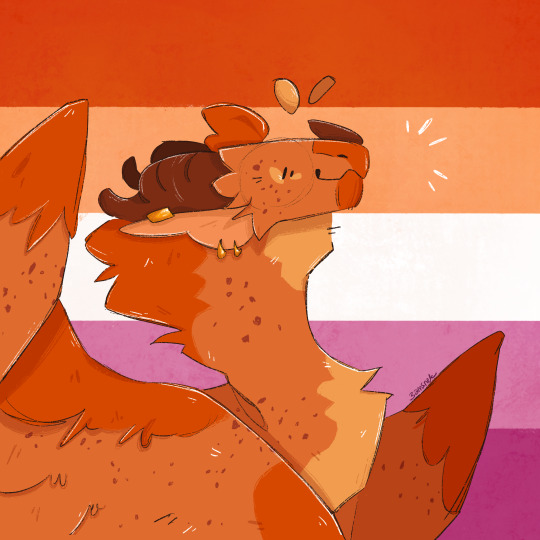
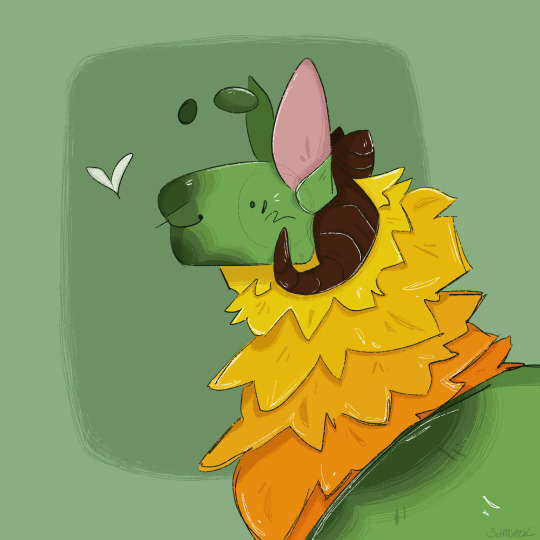
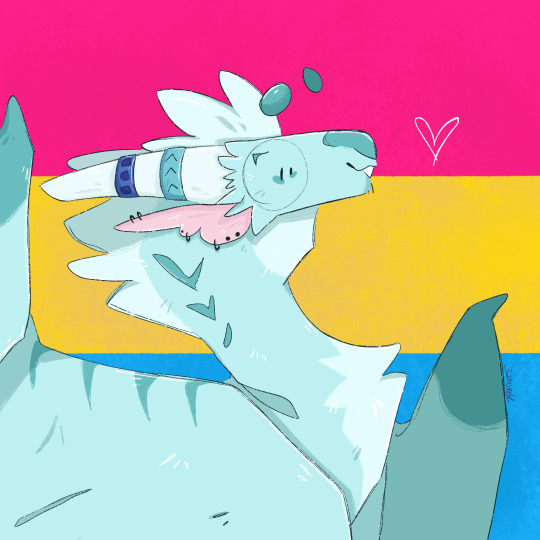


reopening pride icon commissions!
support your local trans dragon artist & get some fun art of your characters!
any dragon character, original or fandom
fully colored & shaded icons in a simplified sketchy style with a background of any pride flag/s and an emote of your choice!
6 slots available
$20 usd
order & payment via ko-fi - Stripe only
estimated working time is 1-2 weeks, I will try to get them done within June as much as possible
feel free to dm me if you have any questions!
rbs appreciated!
#commissions#commission#commissions open#icon commissions#digital commisions#commission sheet#oc commission#pride commissions#pride month#lgbtqia#trans artist#digital illustration#dragon#wings of fire#wof#wof fanart#wof ocs#(none here are but yours can be if you want!)#my art?#made these for myself for fun & have the itch to draw other characters again so reopening!#the old tradition returns!#pls zoom in on examples for definition of sketchy#they can also be no flags or just a speech bubble flag if preferred#like the green example#& payment note: if you only have pa.y.pal and no card I can also make that work w stripe#just dm me if that’s needed
48 notes
·
View notes
Text
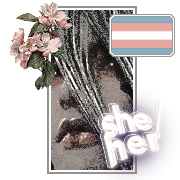
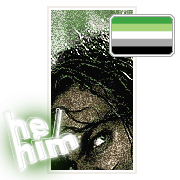
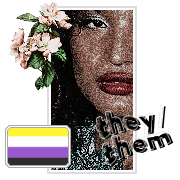

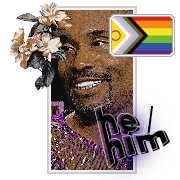
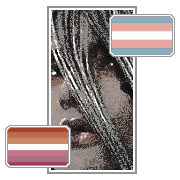
| | | "PRIDE-CON!" ; DASH ICON TEMPLATE [ $4 ] download.
[01]: an icon border inspired by pride; includes default pngs, pronouns && a template of pride flags. any further customization is warmly welcome. [02]: credit is required on blog, in pinned or about / you must like or reblog if using. [03]: do not redistribute my work or edit to release as your own. [04]: you can DM to purchase directly via cashapp if you prefer. [05]: donations + tips are not required but are greatly appreciated !
#rp icons#icon template#rp graphics#as for the product itself ...#theres a SHIT TON of flags / pronouns if you're worried theres only like 3#thats just bc im too lazy to make a proper example#ofc if i missed anything that's up to you to customize <3#* mine.#myicontemplates
61 notes
·
View notes
Text
I can't thank dante gabriel rossetti enough for having painted guido in that position. It's so versatile. he can lean on anything
172 notes
·
View notes
Text
Auto-Love/Hate relationship
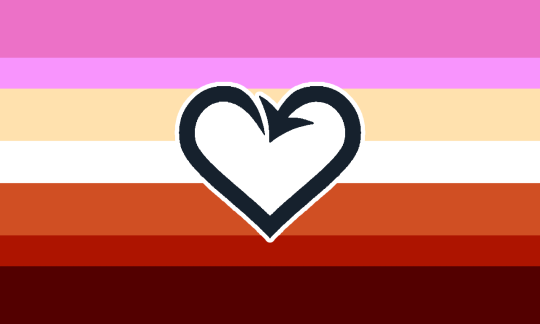
A flag for beings who are autospec and have a love/hate relationship with themselves. Love/hate relationships involve simultaneous or alternating emotions of love and hate towards another person, commonly when emotions are intense. But in this case it's between you and yourself!
Flags stripes meanings
Pink stripe- love, any type of love towards yourself
Light Pink stripe- romance, sex, intimacy, etc
Light yellow stripe- bittersweetness, actions towards yourself that are either loving and/or hateful
White stripe- your own personal auto identity
Orange stripe- complex and mixed emotions about yourself
Red stripe- lack of passion and intimacy
Dark red stripe- hate, any sort of hateful feelings towards yourself
#.⎯✟·】#NO I am not promoting or romanticizing toxic relationships!!#some autospecs(me for example) have a complicated relationship with themselves because of mental issues!!!#and for any reason honesty!!!#mogai#mogai coining#flag coining#coining#flag making#mogai friendly#mogai tumblr#mogai pride#mogai flag#mogai community#mogai label#mogai orientation#mogai term#autospec coining#autorose#autoromantic#autosexual#autospec#qai term#qai coining#qai flag#qai#liom term#liom coining#liom#orientation coining
41 notes
·
View notes
Text
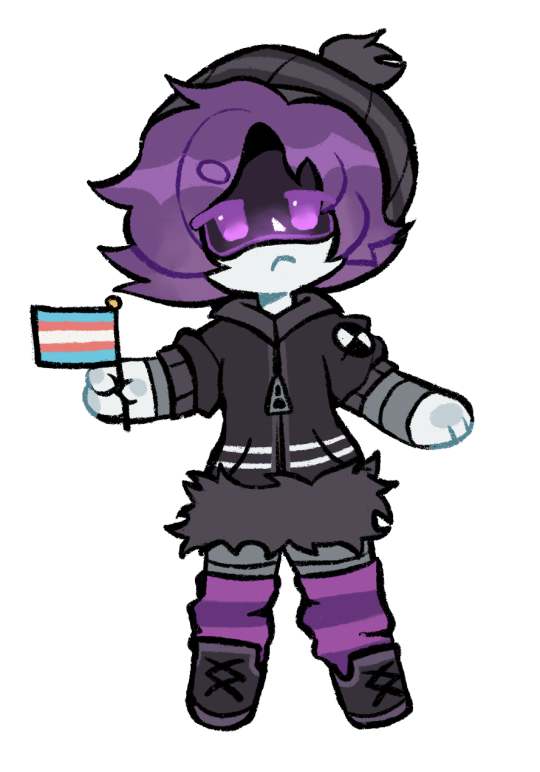
self indulgent trans Uzi pagedoll !!!! + more under cut

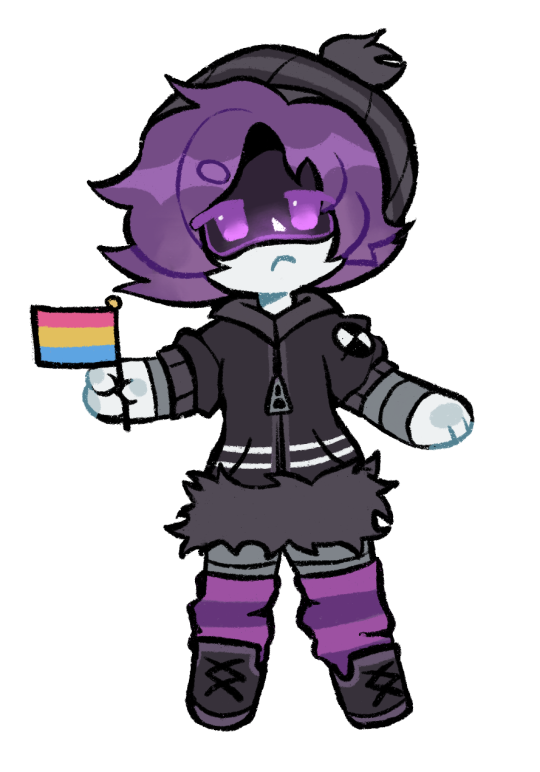
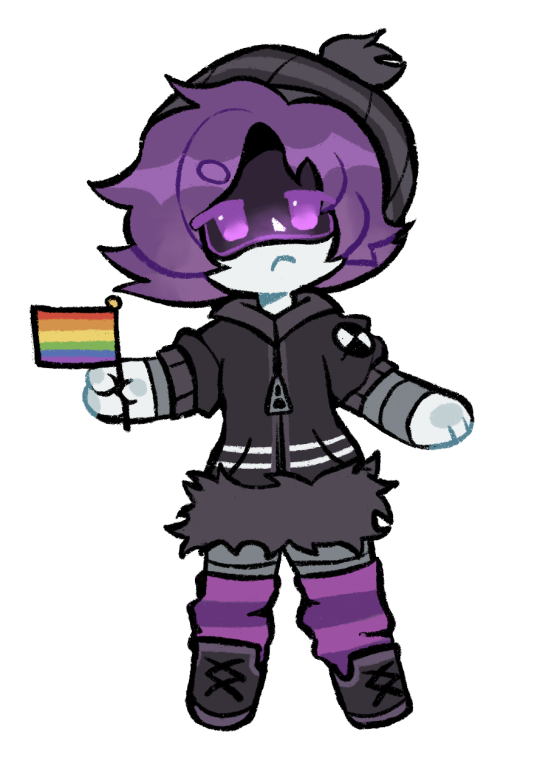
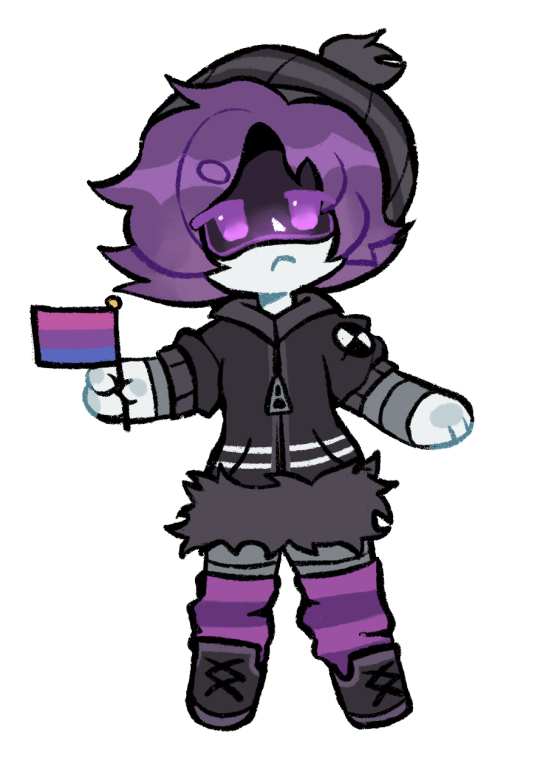
#Murder drones#art examples#Might open comms with this chibi style idk. Is kinda cutes#:3c#If theres a flag u want just let me know and I can try to make it for u!!!! Just dm !!!!#Edit: forgot normal pride flag!!! urrrrg#EDIT 2: FOROGR HER SUMBOL ON SHIRT IGNIRE THAT <\333
301 notes
·
View notes
Text






from the documentary “Lugansk: Road to Independence 2022-2014”
#a lot of people say ‘if not always want leave ukraine why russian flag at protest’#1. many people want closer relationship with russia over west (hence the hate obama love putin banner$#2. they saw there neighbor russia as example of federation system they want implement in ukraine#3. a lot of people in donbass are ethnic russian even more are russian culturly#4. some also from start saw writing on wall and knew that maidan regime would never negotiate so always was in favour of succession#documentary
19 notes
·
View notes
Text
i think there is something really weird and "don't ask don't tell" about the way that we treat celebrities possible sexualities. like it is perfectly normal and okay to assume a celebrity is straight and not invasive at all but to speculate some gayness is seen as a crime. as if the worst thing a straight person could be seen as is gay.
like it is weird overall to talk about the sexualities of people you don't know, but if you are already having that conversation i think that avoiding any sort of possible queerness is rooted in homophobia. i think that it is an ingrained, socially taught, homophobic response to react negatively to speculating that someone is gay.
like billie eilish for example. i always thought she gave queer vibes, i was able to spot this because i am a lesbian and am part of the in-group where we have to rely on "vibes" and implied meaning to figure out if someone is gay. when she "came out" she literally stated that she thought people already knew. maybe straight people didn't know because they assume straight until they are beaten in the face with a rainbow but she thought the queers were in on it. she expressed frustration that she had to explicitly put it out there, that the only way she could actually be seen as queer and a member of this community is by stating directly, to a media source, "i am queer".
i think that is a bad precedent to set! i think we should be more open and willing to accept that tons of people are queer (especially in the performing arts like are you kidding). if you think it is insulting or demeaning to suggest that an artist is queer you need to reflect on your subconscious biases. why exactly is it bad to be gay?
i also think that queer artists who are not comfortable being out to the straight public would love to be acknowledged and recognized by fellow members of the community. queerness is something that is signaled and implied and flagged to members of the group, someone does not have to explicitly state that they are queer to be queer. we need to stop policing identity and we need to stop labeling everyone straight as a default.
this community should be open and accepting. we should welcome queerness and embrace those who are exploring what that means, who are maybe not comfortable with judgemental straight people knowing but still want to find community in being and acting queer.
#this is not just about taylor swift lol but she is a great example of someone who has repeatedly flagged queerness#also travis honey he was trying to fight the gay allegations before those two even met#gaylor#this is a topic with nuance and all that crap but there is a difference between outing and saying shit on the internet like lets be fr#some of yall act like calling your fav celeb gay is the same as shooting them in the chest and it is weird!
68 notes
·
View notes